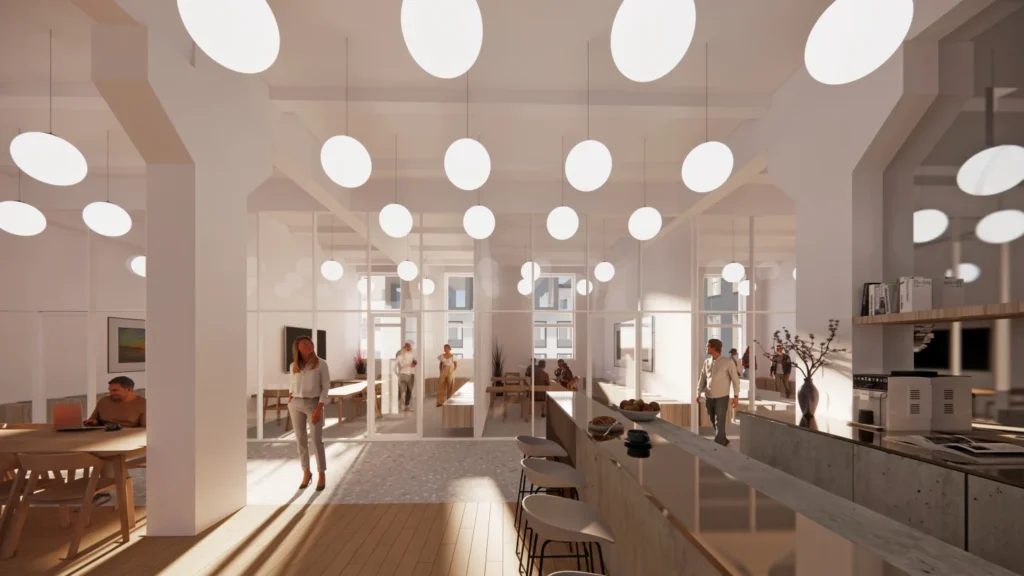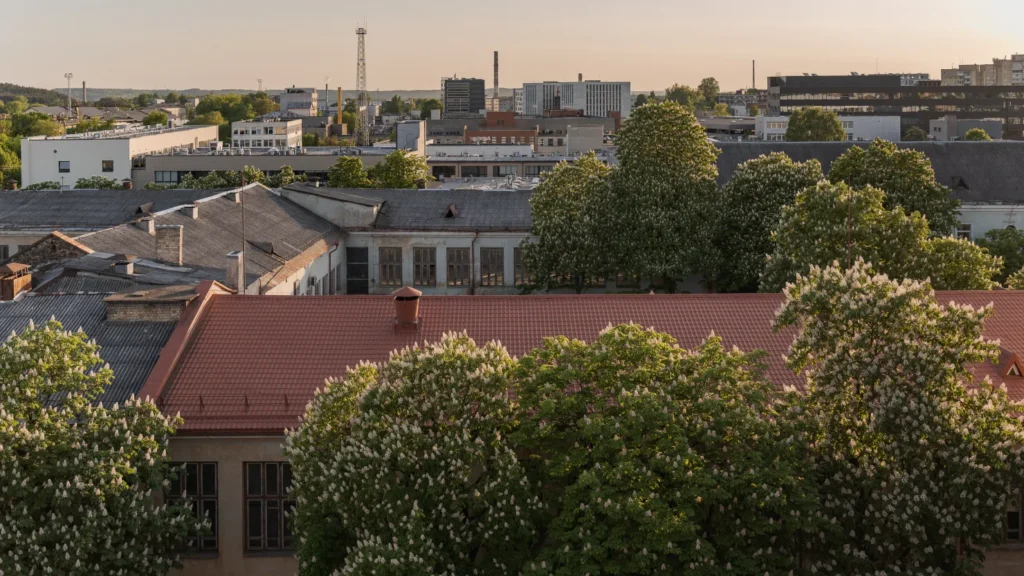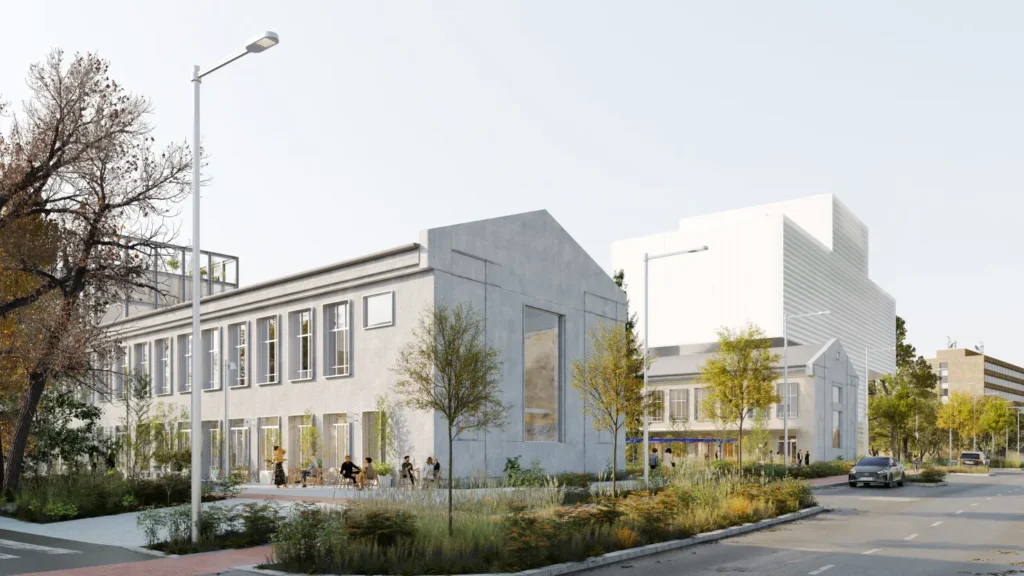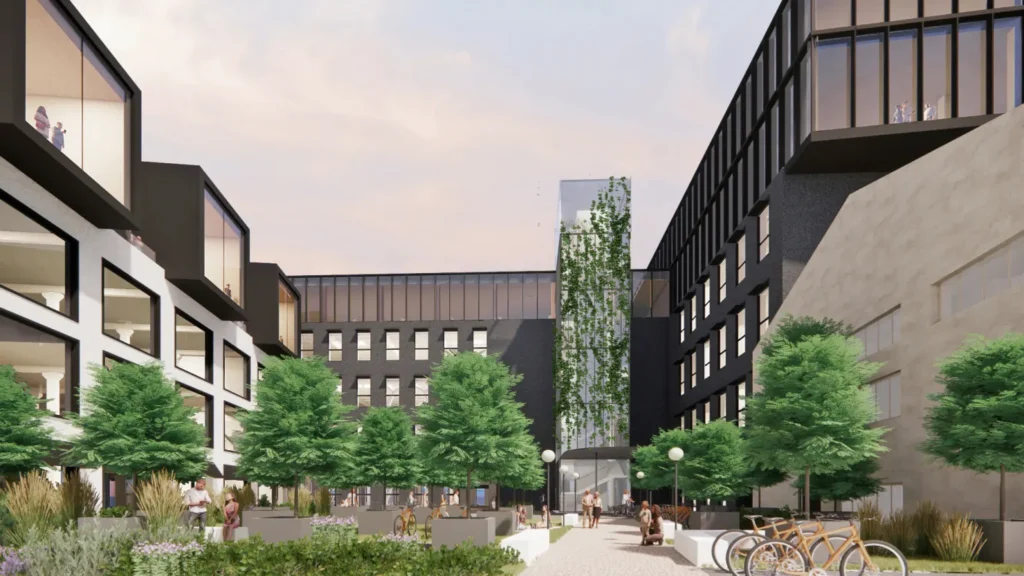Vilnius, the capital of Lithuania, is set to become a major player on the European tech stage with the launch of one of the continent’s largest tech campuses. The €100 million infrastructure project, led by Tech Zity, aims to create a sprawling, innovation-driven ecosystem that will house 5,000 workers in the heart of Vilnius’ New Town. The ambitious initiative is set to transform the former industrial site into a hub for creativity, collaboration, and technological growth.
The booming tech landscape of Lithuania
Between 2017 and 2022, Lithuania’s digital economy experienced explosive growth, increasing by 16.8 times annually. By 2022, the country’s tech ecosystem was valued at over €9.5 billion, a testament to its resilience and ability to thrive in a volatile global tech environment. While many regions saw a slowdown in tech investment, Lithuania recorded its second-best year ever in venture capital funding, with major global players like General Catalyst, Accel, Eurazeo, and Speedinvest making their first investments in the country. Lithuania’s rise as a tech hub is particularly evident in Vilnius, where the number of startups has reached 740. With an influx of 67,100 expats in the last year, many of whom work in the digital sector, Vilnius is quickly becoming a magnet for tech talent. The city’s tech workforce of around 17,000 is expected to double in the next three years.
Tech Zity: leading the charge
Central to this boom is Tech Zity, an organisation at the forefront of Vilnius’ tech evolution. Their latest project, a €100 million campus, will span 55,000 square metres and is poised to become the largest tech campus in Europe. Upon completion, it will provide an ecosystem explicitly designed for the needs of startups, scale-ups, and multinational tech companies. One of the critical elements of Tech Zity’s success is its infrastructure-first approach. Unlike other European tech hubs, where digital ecosystems are often crammed into existing real estate, Tech Zity’s campus is being built from the ground up with tech companies in mind. This thoughtful design will foster collaboration and innovation, with every amenity on-site to support a thriving digital community.
The new campus will offer much more than just desk space. With 5,000 desks across private offices and co-working areas, the site will also feature extensive co-living spaces, meeting rooms, event venues, restaurants, cafes, and bars. Open 24/7, the campus aims to be a workplace and cultural and educational hub. Whether providing a space for industry events or hosting informal gatherings, Tech Zity is committed to building a community beyond the typical work environment. At the heart of Tech Zity’s design are the co-living spaces, where tech workers can live close to their workplaces and Vilnius’ cultural hotspots. These spaces are intended to promote community outside of work, offering access to sports facilities, bars, and more, all within the same campus. This integration of living, working, and leisure is a hallmark of Tech Zity’s forward-thinking approach to tech infrastructure.




Paying homage to its industrial heritage, the new Tech Zity campus will be built on the site of former sewing factories. The original architecture will be preserved, with high ceilings and expansive floors reminiscent of the site’s industrial roots. The developers aim to emulate iconic renovation projects like London’s Tate Modern and Battersea Power Station, creating a space that is as much about preserving history as it is about fostering innovation. Darius Žakaitis, the founder of Tech Zity, reflects on the growth of Vilnius’ tech scene: “When I started investing in the Vilnius tech ecosystem in 2009, you could fit the entire tech community in one room. Now, we’re growing at a pace that demands significant investment in real estate infrastructure.” With Tech Zity, Žakaitis aims to provide a home for tech companies at every stage of their development, from pre-seed startups to established giants like Google.
A model for sustainable development
Sustainability is a key pillar of the Tech Zity project. The developers have prioritised renovating existing industrial structures rather than demolishing them, a decision that will save an estimated 500 million tonnes of carbon emissions. Tech Zity sets a new standard for environmentally conscious tech infrastructure by reusing materials and integrating green building practices. With the campus set to host companies like Omnisend, HeavyFinance, and Turing College, Tech Zity will play a central role in fostering Vilnius’ reputation as a tech powerhouse. The project is also expected to attract significant international interest as Lithuania continues to draw the attention of global investors looking for the next big tech hub.
The new campus represents a bold step forward for both Vilnius and Lithuania. It is not just about providing a space for companies to work—it is about building an ecosystem that promotes collaboration, innovation, and sustainable growth. As Valdas Benkunskas, Mayor of Vilnius, remarked, “Vilnius is maintaining a firm position within the European tech scene thanks to rapid innovations and visionary businesses like Tech Zity. Bursting with innovative entrepreneurs, multinational talents, and ambitious investors, the capital has grown into a modern tech hub that evokes bold ideas and successful collaborations.” With its thriving digital ecosystem and commitment to sustainable, community-focused infrastructure, Vilnius is well on its way to becoming one of Europe’s leading tech capitals.


